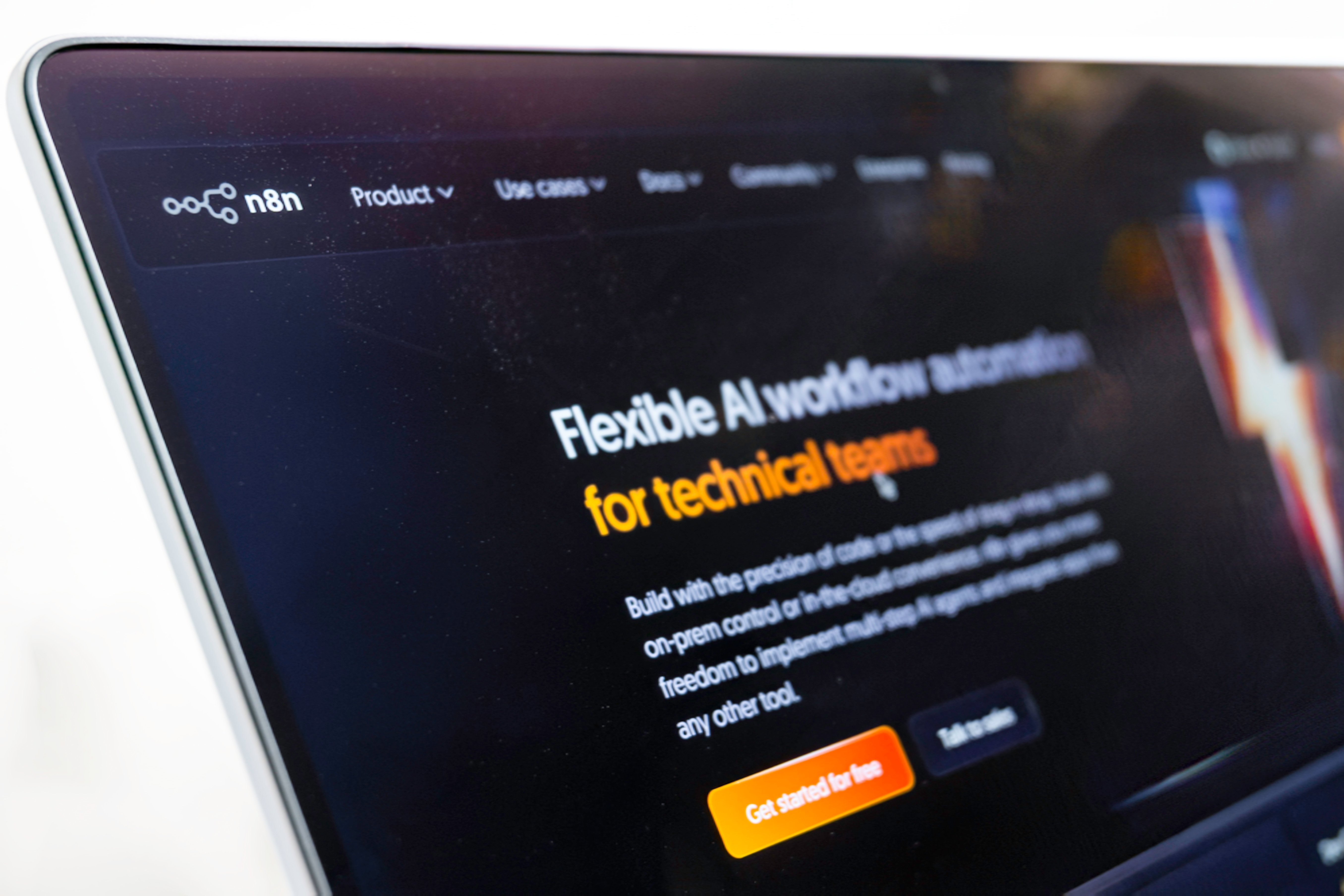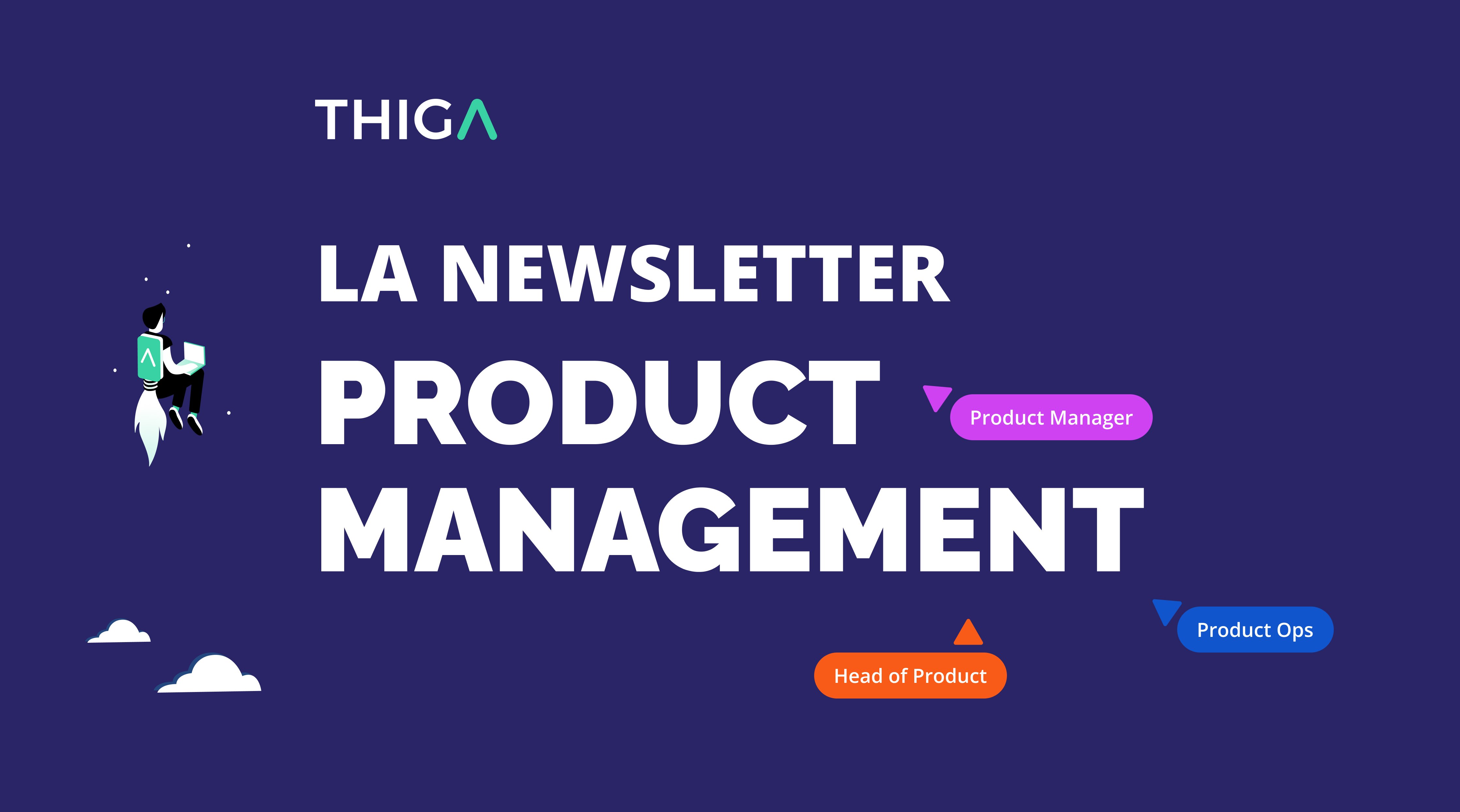Artificial intelligence is redefining the rules of hospitality. Booking, check-in, guest experience, operations... Every lever in the sector is undergoing rapid transformation. The question is no longer whether AI will reshape the industry, but how to adopt it in a way that creates value without compromising the art of service. Antoine Barbotin, Director of Hospitality & Tourism at Thiga, unpacks the five major challenges to overcome in order to turn AI into a sustainable driver of performance and experience.
Imagine a guest who no longer visits your website to make a booking, a virtual assistant who responds to their needs in real time and in their own language, or a unified data system that powers every interaction with your staff. This is no longer science fiction; it’s already a reality for the most innovative players in the industry. In fact, your next customer may never even land on your site. They might be chatting with a conversational agent to plan their trip, completing a booking in seconds, and arriving in a room configured to their exact preferences.
After several years working alongside major players like Accor, Club Med, and Disneyland Paris, I’ve seen firsthand how AI is reshaping hospitality, turning data into the fuel behind ever more personalized experiences. Here are five key challenges to overcome in this new era and how to turn them into opportunities for value creation.
1. The transformation of booking: from search to personalized dialogue
Two years ago, who would have bet that a third of American travelers would plan their vacations with a conversational agent? Yet that’s exactly what a study by Longwoods International reveals. Today, ChatGPT, Gemini, or specialized platforms like Swifty for Lufthansa can build itineraries, recommend hotels, and book tickets in minutes. We’re moving from manual searching to fluid, tailor-made conversation.
This shift is shaking up hotel distribution. Since LLMs tend to favor direct hotel websites in their responses, OTAs like Booking or Trivago are losing visibility while direct bookings gain ground. SEO is evolving: content now needs to be optimized so LLMs (ChatGPT, Gemini, Mistral) can understand your offer and showcase it.
Beyond today’s models, usage patterns are evolving faster than we think. Some travelers will soon complete their entire booking journey without ever leaving their GPT ecosystem — bypassing websites, apps, and OTAs altogether. This raises a new question: what does an “in-GPT presence” look like? Soon, major LLM platforms will offer branded “layers,” much like WeChat’s mini-apps, allowing every brand to recreate an immersive experience within ChatGPT or Gemini. ChatGPT has already announced the arrival of integrated apps on its platform, partnering with players such as Booking, Expedia, and Spotify. Each company will be able to build its own app through the new SDK.
Conversational interfaces will become full-fledged storefronts, integrating payment (ChatGPT and Stripe have already announced in-platform payments) and likely introducing paid or sponsored listings, similar to today’s search engines.
Meanwhile, new AI-native websites and apps will generate dynamic, context-specific pages in real time and offer live chat modules that co-build the user’s ideal journey, like Google’s Patrick Marlow demo for retail. This marks a profound shift: products are no longer designed for browsers, but for continuous, data-driven dialogue.
It’s also a cultural change. Marketing and product teams must design modular experiences built for “AI agents” rather than human browsers. The boundaries between inspiration, comparison, and booking are disappearing. Those who embrace this fluidity will gain a major competitive edge.
Action steps
-
Optimize for LLMs. Structure your data (prices, availability, amenities, policies) via APIs and schema markup so models can “read” and surface your offers. Build a GEO strategy (Generative Engine Optimization) aligned with conversational agent ranking criteria.
-
Deploy transactional chatbots. Start with a voice or text assistant on your site to handle FAQs and drive conversions. Use it to collect insights on customer intent and train your model.
-
Experiment with real-time personalization. Create dynamic pages that adapt to each visitor (e.g. show family rooms for groups of four, highlight wellness packages for couples). Connect your booking engine to a recommendation system and define business rules accordingly.
- Create an app within ChatGPT. Develop an initial prototype that lets your users interact with your services directly from ChatGPT, for search, booking, assistance, or recommendations. Incorporate your visuals, tone of voice, and business logic using the Apps SDK. This will help you anticipate integration constraints, experiment with new conversational journeys, and establish your brand within the emerging ecosystem of AI assistants.
2. From pre-stay to check-out: orchestrating an augmented experience
The guest experience no longer begins at check-in. Travelers now expect continuous support before, during, and after their stay. The gap is clear: a Medallia study found that 61% of travelers are willing to pay more for personalized experiences, yet only a quarter feel they’ve received one.
Some brands are already closing that gap. At Hilton, the robot concierge Connie handles thousands of simple questions before escalating complex requests to human staff. Over a thousand hotels use Duve to orchestrate dynamic pre-stay journeys and upsell add-ons. These tools don’t replace staff; they free up time for what truly matters.
AI takes this even further. The rise of the pocket concierge is inevitable: a true personal assistant able to answer most questions, manage bookings, create tailor-made itineraries, and even control room equipment. Multilingual and capable of learning preferences over repeat stays, this assistant enables fully personalized, autonomous, and frictionless experiences.
For hoteliers, the benefits are significant: incremental revenue, improved service quality, simplified information management, and fewer calls to front desk staff. The challenge will be ensuring guests adopt your proprietary tool before generalist platforms like ChatGPT become the sole entry point, leaving you with no control over the journey.
Action steps
-
Choose a modular virtual concierge. Select a platform that integrates with your PMS and CRM. Start small (info, room service, taxis) before expanding to upselling, local recommendations, and room controls (lighting, temperature).
-
Build a consistent pre-stay journey. Automate personalized pre-arrival messages (practical info, upgrades, activities). Use AI to adapt content to weather, stay length, or detected preferences. Let guests set preferences (pillow type, cleaning times) to avoid friction.
-
Prioritize translation and voice recognition. International travelers value interactions in their native language. Ensure your assistant supports multiple languages and offers a voice interface for guests less comfortable with text.
-
Train your staff on AI. Define clear escalation rules: when can the agent handle a request alone, and when should it hand off to humans? Teach teams to analyze interaction data to better anticipate needs and personalize service.
Curious to go further? Explore how digital is reshaping customer experience into a lasting source of competitive edge in hospitality.
3. Delivering a consistent customer experience at scale
In hospitality, every interaction counts. A warm welcome can’t make up for a slow response or a clunky check-out. The guest experience must be seamless across every moment, from first contact to post-stay follow-up. Guests don’t remember the average of their interactions; they remember the weakest link. Neglect one touchpoint, and satisfaction plummets, loyalty fades, advocacy disappears.
AI is a powerful lever to eliminate these weak links and ensure consistency. By centralizing data and interactions, it aligns tone, responsiveness, and accuracy across channels: chat, phone, email, face-to-face. It can analyze history and intent to anticipate needs and ensure every exchange feels relevant and smooth.
Even more, AI can detect and correct pain points proactively, flagging long wait times, alerting staff to dips in satisfaction, or adapting experiences based on context (weather, local events, guest profile). The goal: ensure every stage, big or small, lives up to your brand promise.
This foundation builds a solid CX, driven by a shared vision across all touchpoints, both physical and digital: front desk, tech teams, CRM, customer service, housekeeping. When everyone acts from the same understanding of expectations and standards, guests perceive effortless continuity.
The upside is measurable. Studies show that consistent cross-channel experiences can boost NPS by 15 to 25%, increase retention by 20%, and reduce churn by 10 to 15%. Operationally, this coherence can lower complaint-handling costs by 20 to 30% and raise the likelihood of turning guests into promoters, key drivers of organic growth and repeat business.
By mapping all entry points in the experience and addressing them coherently, you’ll uncover new, untapped touchpoints, opportunities for ancillary revenue, on-site offers, local partnerships, or digital upsells.
Blending human and AI efforts turns fragmented journeys into orchestrated ones, where ordering a coffee or resolving a complaint both reflect the same care and quality.
Action steps
-
Map guest journeys. Visualize every touchpoint (social, email, phone, app, site, on-site) and pain point. Identify where communication breaks down or data gets lost.
-
Implement an omnichannel platform. Choose a tool that unifies interactions and data, integrates with your PMS and marketing stack. Start small (chat + email), then scale.
-
Define a tone-of-voice guide. Set brand standards (style, emojis, response times). Train human agents and configure bots accordingly. AI can assist in enforcing consistency.
-
Create smooth escalation flows. Route complex requests to the right staff. Use AI to pass context (bookings, expressed needs) so guests never repeat themselves.
4. AI as an operational ally: automate to elevate the human
The labor shortage in hospitality is no secret. Since the pandemic, attracting and retaining qualified staff has been a major challenge. Once again, AI offers pragmatic answers, automating what can be automated and freeing staff to focus on creativity and care.
Virtual agents like Annette by Travel Outlook handle up to 60% of calls, cutting call center volumes by 87%. Some hotels now deploy robots for cleaning, delivery, or even cocktail prep to ease physical workloads.
AI-driven revenue management systems dynamically adjust pricing based on demand and competition, boosting revenue by 7.2% on average (Cornell study). Still, in complex situations, humans outperform machines by 12%. The best model is a collaborative duo: AI suggests, humans decide. Gartner estimates this synergy can raise efficiency by 25%.
AI doesn’t just automate, it optimizes resources across the board. Labor, materials, energy, everything can be managed smarter. The average hotelier spends five hours daily behind a screen; that’s five fewer hours with guests. Automating reports, schedules, and requests reclaims that time for guest engagement.
On the material side, AI can predict consumable needs, trigger preventive maintenance before breakdowns, and fine-tune stock management to reduce waste. On the energy front, it can adjust lighting, heating, and cooling in real time based on occupancy and weather, generating savings and cutting carbon footprints.
Combined, these levers go beyond cost-cutting. They maximize staff impact, enhance comfort, and foster a more fluid, motivating workplace. The goal isn’t to do more with less, but to do better with what you have.
In automating recurring tasks, AI not only strengthens customer relationships, it mitigates staffing shortages by maintaining or even improving service quality with smaller teams.
Key takeaway: Automation isn’t a threat to jobs, it’s a path toward higher-value roles. It reduces fatigue, boosts quality, and frees time for innovation.
Action steps
-
Deploy internal AI agents to handle staff queries (PMS data lookups, report generation, inventory tracking) and speed decision-making.
-
Automate supply management. Use AI to predict linen, F&B, and supply needs from occupancy forecasts and trigger supplier orders.
-
Adopt predictive maintenance. Analyze equipment usage data to schedule servicing before failures, reducing downtime.
-
Install connected sensors paired with AI to optimize energy and resources (auto climate control, leak detection, occupancy-based lighting).
-
Support change management. Communicate benefits (fewer repetitive tasks, skill growth), offer training, and involve staff in pilot tests to foster ownership.
5. Data as a lever for personalization and performance: know better to serve better
Personalization can’t be proclaimed, it’s built on customer knowledge. The more data hotels collect (transparently and with consent), the more relevant AI can be. Travelers aren’t opposed; quite the opposite. Nearly half are willing to share data for a more tailored stay.
Data thus becomes a growth engine: room recommendations, targeted dining offers, dynamic pricing, or identifying locals for events. Hyatt and AWS, for instance, generated nearly 40 million dollars in six months through personalized recommendations and upgrades. Data is a strategic asset, but only if governed and secured properly.
Used well, data doesn’t dehumanize, it empowers empathy. A receptionist who knows a returning guest loves tomato juice can have one ready on arrival. Data fuels attentiveness and creativity.
AI also opens one last opportunity: thinking beyond accommodation.
By analyzing profiles and behaviors, hotels can develop services for locals, coworking spaces, fitness classes, brunches, events. The goal: turn transient spaces into living ones, smooth seasonality, and nurture loyal local communities.
It’s a strategic lever for recurring revenue and deeper guest relationships.
Action steps
-
Establish clear data governance. Appoint a Data Owner, define collection, storage, and access rules, document data flows, ensure GDPR compliance (an AI agent can help).
-
Unify sources. Centralize PMS, CRM, social media, and booking data in a single Customer Data Platform (CDP). Clean duplicates, fix errors, and enrich progressively.
-
Champion consent. Explain data usage, offer adjustable preferences, and granular opt-ins.
-
Use predictive analytics. Segment clients (families, business, locals) and anticipate
behaviors (spa likelihood, price sensitivity) to launch targeted campaigns and offers. -
Empower staff. Train teams to read and act on data, from receptionists offering favorite drinks to sales reps targeting local companies for events.
Should every hotelier or staff member become an AI expert, building and deploying custom solutions? Absolutely not. But everyone can and should adopt simple, accessible tools. GPTs and conversational assistants already cover many use cases that deliver tangible, daily gains: saving time, improving organization, cutting repetition.
Just like the shift to web or mobile, ignoring this transformation would be like refusing to use a smartphone or search engine. Complex applications will naturally integrate into industry platforms, from established players or nimble newcomers.
The key is to start now: test, automate small, build habits. And don’t wait too long; those who take the leap first will also be first to reap the rewards.
Hospitality is entering the age of AI. Looking to rethink customer experience and operational performance? Our Hospitality & Tourism experts can help you identify the right use cases, set clear priorities, and transform your operations - get in touch to start the conversation!



.png)
